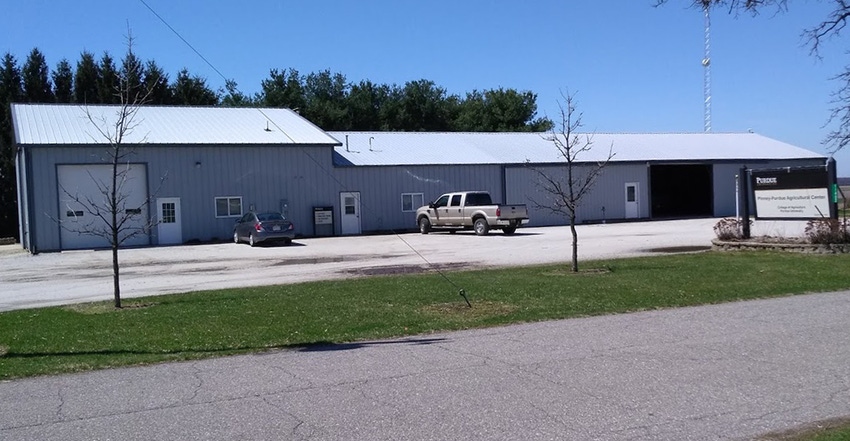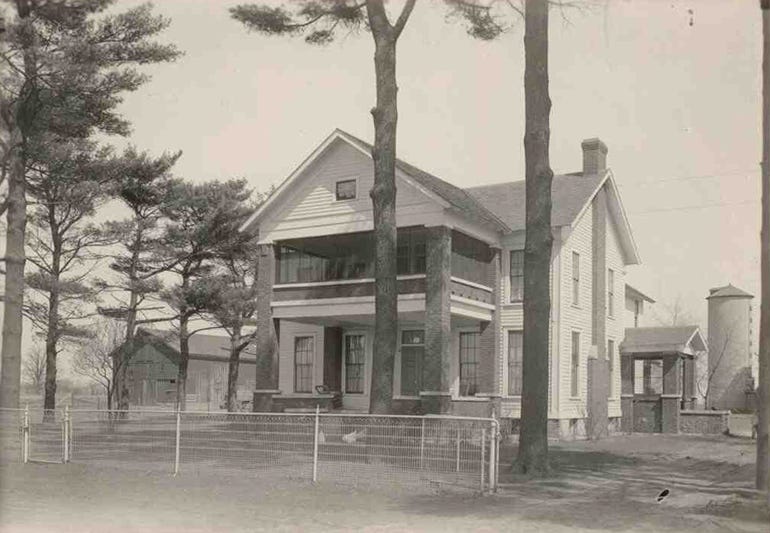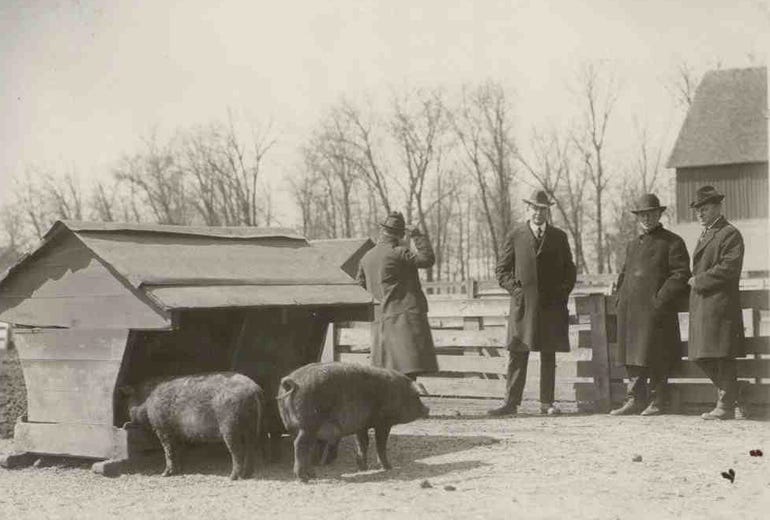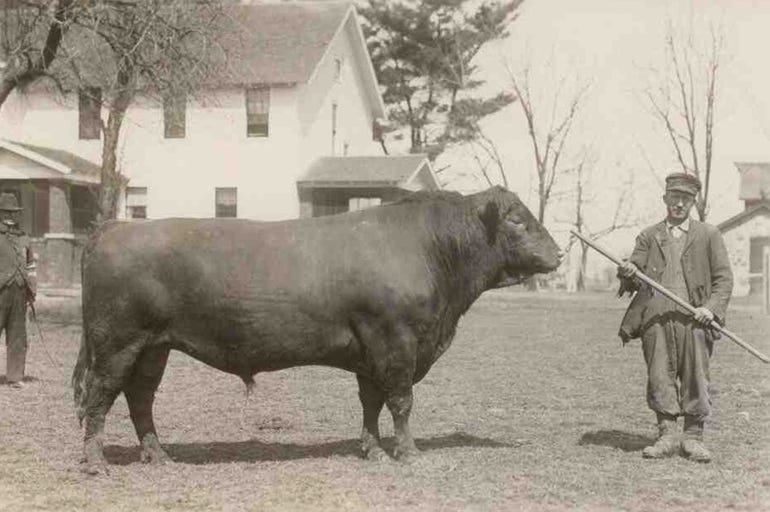
The Pinney-Purdue Agricultural Center near Wanatah, Ind., celebrates 100 years of service to the area on June 22. Everyone is invited to attend the celebration. Superintendent Gary Tragesser says there will be something for everyone, including accounts of the farm’s history and what the farm means to agriculture today.
William Pinney and his daughter Myra Clark gave his 48-acre birthplace farm to Purdue University in 1919. Here’s a look at what the farm was then and what it is today.
Early research on fertility of muck soils. Hallow muck makes up part of the farm. Other soils include Runnymeade loam, which is a bit on the sandy side, and Tracy sandy loam, a very sandy soil. A 1930 station bulletin uncovered by Tragesser refers to muck experiments. Purdue’s Department of Agronomy began tests in 1925 on sweet muck, a non-acidic muck found often in northern Indiana. A four-year rotation of corn, corn, soybeans and potatoes was used to determine the need for lime, phosphorus and potash on these soils. It was soil fertility research “way back when.”

WHERE IT ALL BEGAN: This was the house on the farm William Pinney donated to Purdue. It remained on the farm for decades before deterioration forced it to be torn down.

Corn trials in 1937. Corn performance trials were conducted at Pinney-Purdue in 1937 and 1938. They included both open-pollinated varieties of the day and new hybrids released by Purdue plant breeders. Tragesser notes these hybrids were attracting attention because yields were 10 to 20 bushels per acre better, and much better stalk strength allowed for mechanical harvesting. Pinney-Purdue has remained a significant test site for corn and soybean trials.
Swine breeding program. The big news at Pinney-Purdue in 1941 was initiation of a swine breeding project with the Regional Swine Breeding Laboratory of USDA. The goal was hogs with improved feed efficiency and lower lard percentage — remember, this was 1941! A Landrace-Duroc boar was part of the project, and by 1943, records indicate this was the most significant research project on the farm.

BREEDING PROJECT: Both Purdue and USDA researchers sought to breed leaner hogs through an experiment at the farm in the 1940s.

Belgian draft horses. The Davis-Purdue farm was known for award-winning Belgian draft horses, and Pinney-Purdue left its mark as well. In fact, Tragesser says that Felix, a famous stallion at the Davis farm, was transferred to Pinney-Purdue in 1930. A 1943 photo that was uncovered shows five geldings sired by Pinney-Purdue’s Baron.
Red poll cattle. Red poll cattle came with the farm and became a trademark of Pinney-Purdue for decades. Photos of award-winning cattle and some of the trophies and ribbons won over the years will be on display at the June 22 celebration. The late Marshall Mohler, superintendent from 1950 to 1987, noted that this herd was known among breeders worldwide, with award-winning cattle from the herd present on five continents. Red poll cattle remained on the farm until after Mohler retired. No livestock are housed at the farm today.

PRIZE-WINNING LIVESTOCK: This photo of the bull called Protector at Pinney-Purdue dates to 1921.

Current research. Tony Vyn and Terry West conduct tillage experiments at the farm today. Bob Nielsen and Jim Camberato also have plots at the farm, as do Shaun Casteel and other Purdue researchers. The farm today consists of 643 acres on the Porter-LaPorte county line. The farm includes irrigated studies, woods where forestry studies have been conducted over the years, and even horticultural research. Larry Bledsoe of Purdue entomology does work at the farm, as does Darcy Telenko, Purdue’s new crop disease specialist. Phil DeVillez continues hybrid and variety research trials at the farm.
About the Author(s)
You May Also Like




